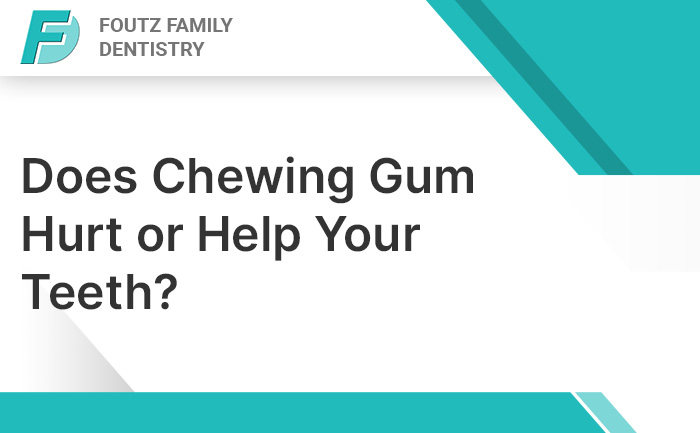
Gum has been around for thousands of years in various forms. Today, there are plenty of myths and facts about whether it’s good or bad for you. We’re here to lay the claims to rest and give you the information you’ve been looking for.
Gum originally came from the sap of spruce or chicle trees. People chewed it for the same reasons they chew gum today: as something enjoyable to put in the mouth and to pass the time.
Modern chewing gum, though, isn’t quite what it used to be. It’s made mostly from synthetic rubbers and artificial flavorings, meaning that it has some potential health risks that weren’t associated with original gum chewing. In fact, it’s full of plenty of ingredients that you probably didn’t know you were putting into your mouth.
- “Gum” – a rubbery base that makes the product chewy
- Resin – used to strengthen gum and make it last longer
- Fillers – what gives gum a particular texture (ex: calcium carbonate, talc)
- Preservatives – compounds that make gum have a stable shelf life (ex: butylated hydroxytoluene or BHT)
- Softeners – substances that keep gum from hardening (ex: wax, paraffin, vegetable oil)
- Sweeteners – natural sugar, corn syrup, sugar alcohols, or artificial sweeteners such as aspartame
- Flavorings – natural or artificial flavorings
All of these ingredients are considered food grade and deemed “safe” by the FDA; however, they aren’t often labeled well and sometimes appear as a simple “gum base” ingredient. You should decide for yourself whether or not you want to consume the ingredients in chewing gum.
Certain experts deem chewing gum to have benefits for the mouth, such as:
- Preventing cavities – Sugar-free gum can help prevent tooth decay, especially when it’s sweetened with xylitol.
- Reducing bad breath – Xylitol prevents bad bacteria growth, which is a common cause of bad breath.
It can also have negative side effects though, including:
- Causing cavities – If you chew gum with added sugar, this can be a cause of cavities.
- Plaque buildup – Sugar is dissolved by bad bacteria in your mouth, which increases plaque growth.
- Metabolic conditions – Too much sugar, even in the form of gum, can cause diabetes, obesity, and other health issues.
- Jaw problems – People who chew gum all day long often develop TMJ, or temporomandibular disorder, which causes pain, tightness, and immobility of the jaw.
- Headaches and teeth grinding – Gum chewing can also cause tension headaches and migraines, which can cause jaw clenching and teeth grinding.
Chewing gum here and there, especially when it’s sugar-free and made with natural ingredients, typically won’t harm your teeth. Chewing healthy gum in moderation can even help prevent cavities and rid the mouth of bad bacteria. However, if you’re choosing gums full of artificial ingredients and sugar—and chewing them from sun-up to sun-down—then it could mean a range of dental problems, such as cavities, plaque buildup, tooth decay, and jaw disorders, or even more serious metabolic disorders.
Choose your gum carefully and remember—everything in moderation.









